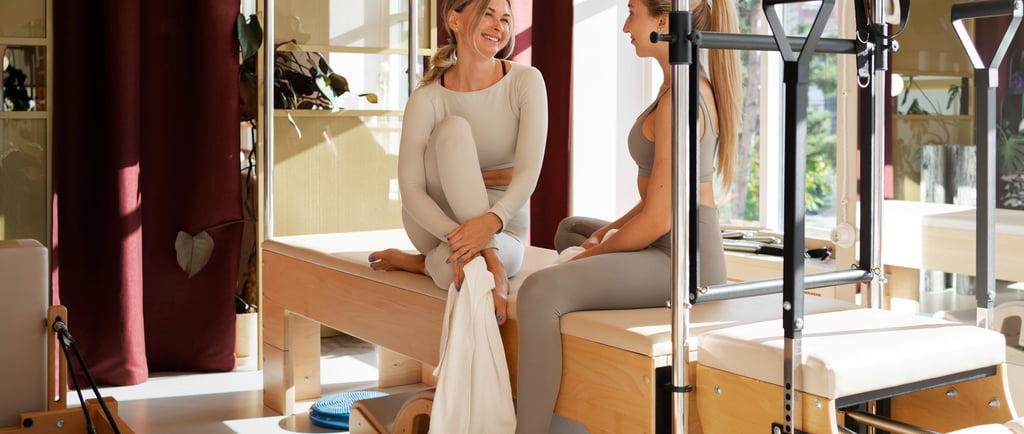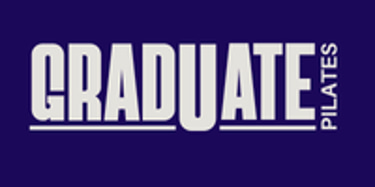Why I'm Waiting to Open My Own Pilates Studio
A personal opinion on why it's not the right time for me to open a studio. (Photo Credit: Freepik.com)
PILATES THOUGHT PIECESPILATES STUDIOSTHE BUSINESS OF PILATESPILATES FOR PILATES INSTRUCTORS / PILATES TEACHERS / FITNESS INSTRUCTORS
Corie Kellman
6/7/20255 min read


Photo Credit: FreePik.com
You may be wondering, "If you are consulting current and prospective Pilates studio owners and teachers, why don't you own your own studio?" And that is a really valid question. You have your own reservations on opening a space or perhaps you wonder why I am qualified to give you advice if I don't own a studio of my own. There are a few key reasons and I am here to share with you why it's not the right time for me to open a studio---which doesn't mean it's not the right time for you to open a studio.
The Initial Investment: A Big Hurdle
It is not cheap to open a new Pilates studio--especially if I am not taking over a similar business from someone else. The upfront costs are hefty and add up if I am not objective and thoughtful about what is important to my business and what is not important to my business. Just a handful of expenses I have to consider include:
Rent: Rent in my city is expensive and would be due even before I open and am able to generate revenue. I don't own a commercial building, so even if I negotiate an agreement that includes a couple of months to make improvements on the space, rent will come due likely before I have enough revenue to cover it. Not to mention, delays in opening can create as snowball effect.
Build Out: I mentioned improvements to the building. These often fall on the business owner--not the building owner--even costs like plumbing, electrical, etc. Depending on the state of the space, I could incur a lot of expenses that add value to the building that I cannot take with me when my lease is up. There are so many costs to a build out we often don't think about like permits, too--plus delays that cost money every day I cannot open.
Equipment Costs: An affordable studio quality reformer is minimum $5,000 each and that is just one piece of equipment (before tax and shipping.) If I want my studio to support group classes with multiple types of Pilates equipment and props, these add up quickly. For a group fitness class, the equipment costs can add up to $50,000+ alone. If there is any delay in shipments, it's another delay that can cost money every day I cannot open.
Branding and Marketing Costs: I could only wish the saying "If you build it, they will come," was all I needed to succeed; however, I am more business savvy than that. I would need to budget for branding and marketing efforts to drive revenue.
Operations, Technology and Tools: Yep -- even that booking software costs money before I can make money. Plus payroll, accountants, legal consult, etc. It all adds up.
I am confident that it is possible to have a successful and profitable Pilates studio, but because I am not wealthy, accessing affordable capital is a roadblock to opening a studio of my own.
Navigating the Marketing Maze
Currently, the Pilates market is experiencing a boom, which makes it even more crucial to have a clear and consistent marketing strategy. Because Pilates is considered a generic term, the current market is calling a lot of different types of exercise "Pilates," and profiting from it's popularity.
Pilates is increasingly marketed as a all-inclusive luxury experience, which (in my opinion) is taking some of the value proposition out of the exercise method itself, and placing a lot of the value proposition onto luxury aesthetics and premium amenities--making it difficult for studios who want to focus teaching quality Pilates classes and less on rich looking fixtures, aesthetically pleasing props, retail product drops, exclusive collaborations, smoothies, coffee, and botox events, etc. This can also drive in the type of customer who is not actually interested in my core service and are more interested in other things, making it difficult to retain them when another business offers them something in next season's fashion.
I want to be clear, there is nothing wrong with creating this experience and creating a niche for your studio. This is a smart way for many to set themselves apart if they do it well and plan for the next trend. What it also does globally, though, is set an expectation that a Pilates studio that does not do all of that is not worth the money. These are lifestyle brand businesses tied to a Pilates studio. I am personally not interested in owning and operating a lifestyle brand, myself--I am not the right leader for that.
Right now, it is difficult to break through the noise and educate the market on what Pilates is. I am also not interested in participating in a heated debate of what is or is not Pilates-- I am a Contemporary Teacher who believes that there are many beneficial forms of movement and that Pilates can be adaptable, but we are experiencing a bit of the Wild Wild West right now. Customers are confused, and I prefer to wait until some of the trendiness dies down so that I do not have to compete with the mixed messaging to market.
Some may believe that I am missing out on grabbing a piece of the market while it's hot; however, my personal opinion is that many of the customers that are buying into the current Pilates lifestyle will not be here for the long haul--they are the type of customer who will move on to the next trend to Keep Up With the Jones/Kardashians. I want a sustainable business with customers who are not confused about what my studio offers and are not disappointed when they show up and it's different from something they saw from others on Instagram.
A Vision for Instructors
I have a dream to create a space where Pilates Instructors can build a career instead of a side hustle. Of course, there will always be a place for part time instructors, however, as someone who wants to build a life as a professional in the Pilates industry, this is important to me.
Today, most of the industry is struggling to figure out how to juggle working at multiple studios through a combination of 1099 and W2 work. While the hourly rate is attractive, it is difficult to build a sustainable annual income without burnout. Furthermore, the lack of benefits and employment protections leave instructors to figure that out on their own as well. This leads to staffing challenges and inconsistencies within the studio. I want to build a community where there is stability and growth for employees and customers.
I want to build a business plan that allows me to hire full-time instructors who are paid a fair and livable salary, including healthcare benefits and paid time off without requiring them to actively teach 32-40 classes a week. I want to invest in instructors and their career, knowing that will also be an investment in my business. This will take time to figure out and I don't want to sacrifice this part of my vision.
A Rolling Stone Season of Life
Lastly, I have spent many years in the startup and hustle culture rat race. My body and mind are currently paying for it. I recently made a promise to myself to take better care of my physical and mental well being and part of that is maintaining a more flexible lifestyle where I am not committed or tied down to a certain location while I take some time to learn more about myself and retrain my nervous system. For this reason, it is not the right season for me to lock myself down to a physical space, but do see this possibility in my future.
CONTACT US
© GRADUATE PILATES, LLC. 2025.
All rights reserved.
